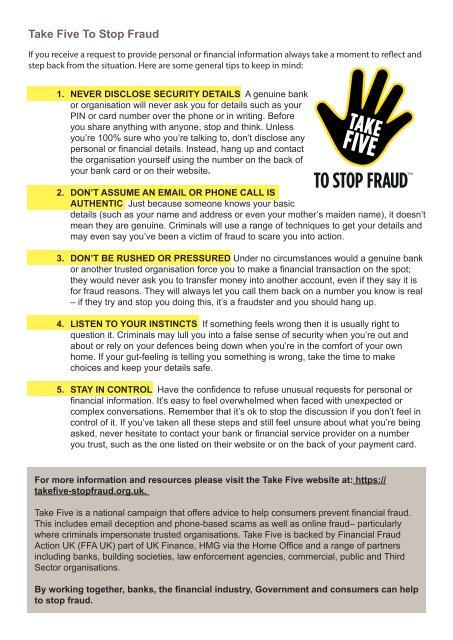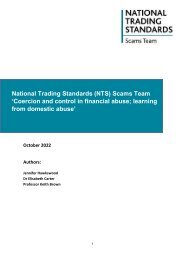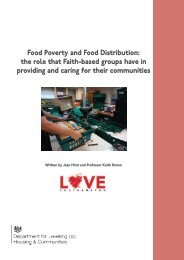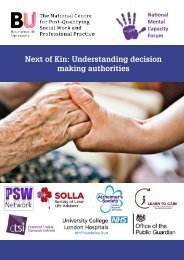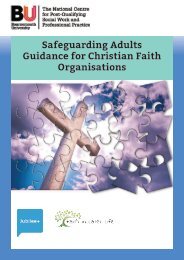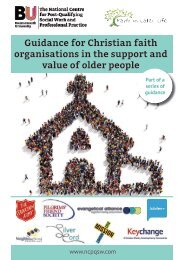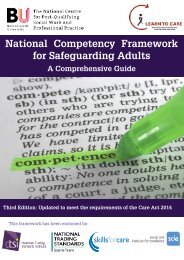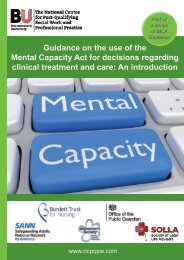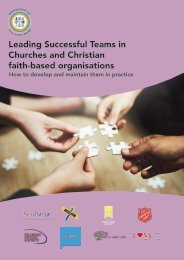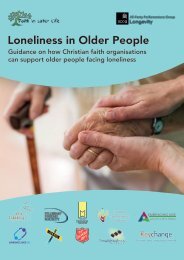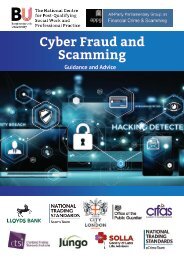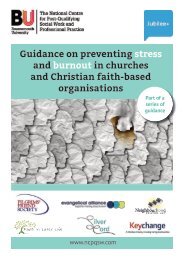0-Scams The Power of Persuasive Language
This publication shows how criminals use language in subtle and powerful ways to scam people out of money. It highlights how, far from the popular idea of the gullible or vulnerable person ‘falling for’ a scam, the reality is that scammers are highly skilled manipulators of language that use techniques designed to make people feel at ease and disguise any cause for concern. This booklet will show some of the ways in which scammers use the reassurance of familiarity, our normal instincts to protect, and isolation from support to draw people in and justify their behaviour.
This publication shows how criminals use language in subtle and powerful ways to scam people
out of money. It highlights how, far from the popular idea of the gullible or vulnerable person
‘falling for’ a scam, the reality is that scammers are highly skilled manipulators of language
that use techniques designed to make people feel at ease and disguise any cause for concern.
This booklet will show some of the ways in which scammers use the reassurance of familiarity, our
normal instincts to protect, and isolation from support to draw people in and justify their behaviour.
Create successful ePaper yourself
Turn your PDF publications into a flip-book with our unique Google optimized e-Paper software.
Take Five To Stop Fraud<br />
If you receive a request to provide personal or financial information always take a moment to reflect and<br />
step back from the situation. Here are some general tips to keep in mind:<br />
1. NEVER DISCLOSE SECURITY DETAILS A genuine bank<br />
or organisation will never ask you for details such as your<br />
PIN or card number over the phone or in writing. Before<br />
you share anything with anyone, stop and think. Unless<br />
you’re 100% sure who you’re talking to, don’t disclose any<br />
personal or financial details. Instead, hang up and contact<br />
the organisation yourself using the number on the back <strong>of</strong><br />
your bank card or on their website.<br />
2. DON’T ASSUME AN EMAIL OR PHONE CALL IS<br />
AUTHENTIC Just because someone knows your basic<br />
details (such as your name and address or even your mother’s maiden name), it doesn’t<br />
mean they are genuine. Criminals will use a range <strong>of</strong> techniques to get your details and<br />
may even say you’ve been a victim <strong>of</strong> fraud to scare you into action.<br />
3. DON’T BE RUSHED OR PRESSURED Under no circumstances would a genuine bank<br />
or another trusted organisation force you to make a financial transaction on the spot;<br />
they would never ask you to transfer money into another account, even if they say it is<br />
for fraud reasons. <strong>The</strong>y will always let you call them back on a number you know is real<br />
– if they try and stop you doing this, it’s a fraudster and you should hang up.<br />
4. LISTEN TO YOUR INSTINCTS If something feels wrong then it is usually right to<br />
question it. Criminals may lull you into a false sense <strong>of</strong> security when you’re out and<br />
about or rely on your defences being down when you’re in the comfort <strong>of</strong> your own<br />
home. If your gut-feeling is telling you something is wrong, take the time to make<br />
choices and keep your details safe.<br />
5. STAY IN CONTROL Have the confidence to refuse unusual requests for personal or<br />
financial information. It’s easy to feel overwhelmed when faced with unexpected or<br />
complex conversations. Remember that it’s ok to stop the discussion if you don’t feel in<br />
control <strong>of</strong> it. If you’ve taken all these steps and still feel unsure about what you’re being<br />
asked, never hesitate to contact your bank or financial service provider on a number<br />
you trust, such as the one listed on their website or on the back <strong>of</strong> your payment card.<br />
For more information and resources please visit the Take Five website at: https://<br />
takefive-stopfraud.org.uk.<br />
Take Five is a national campaign that <strong>of</strong>fers advice to help consumers prevent financial fraud.<br />
This includes email deception and phone-based scams as well as online fraud– particularly<br />
where criminals impersonate trusted organisations. Take Five is backed by Financial Fraud<br />
Action UK (FFA UK) part <strong>of</strong> UK Finance, HMG via the Home Office and a range <strong>of</strong> partners<br />
including banks, building societies, law enforcement agencies, commercial, public and Third<br />
Sector organisations.<br />
By working together, banks, the financial industry, Government and consumers can help<br />
to stop fraud.


